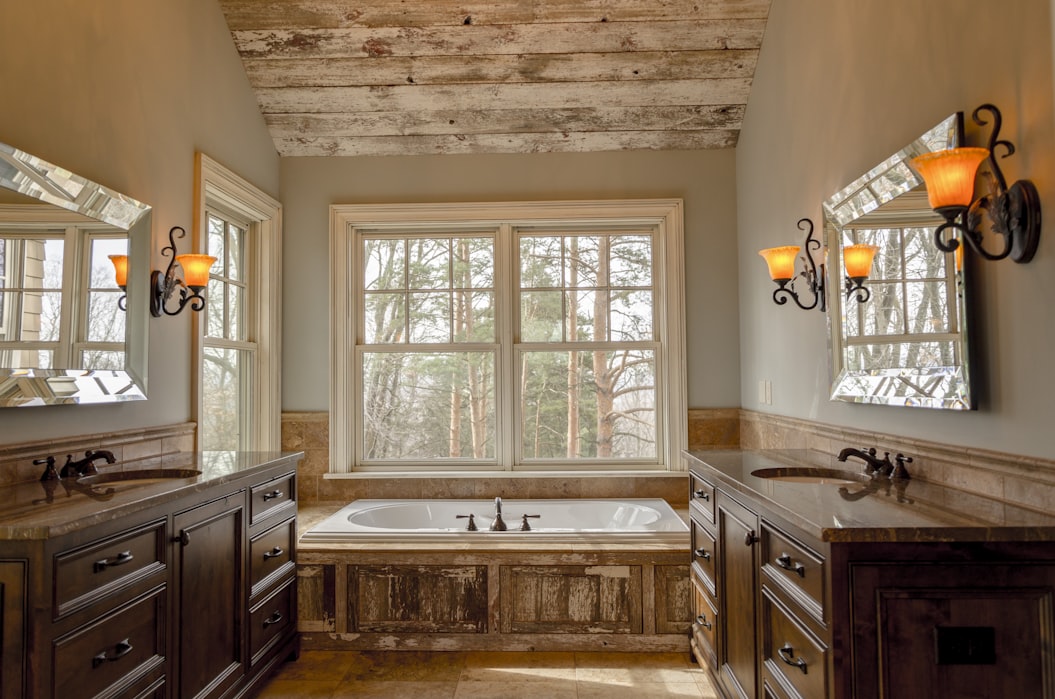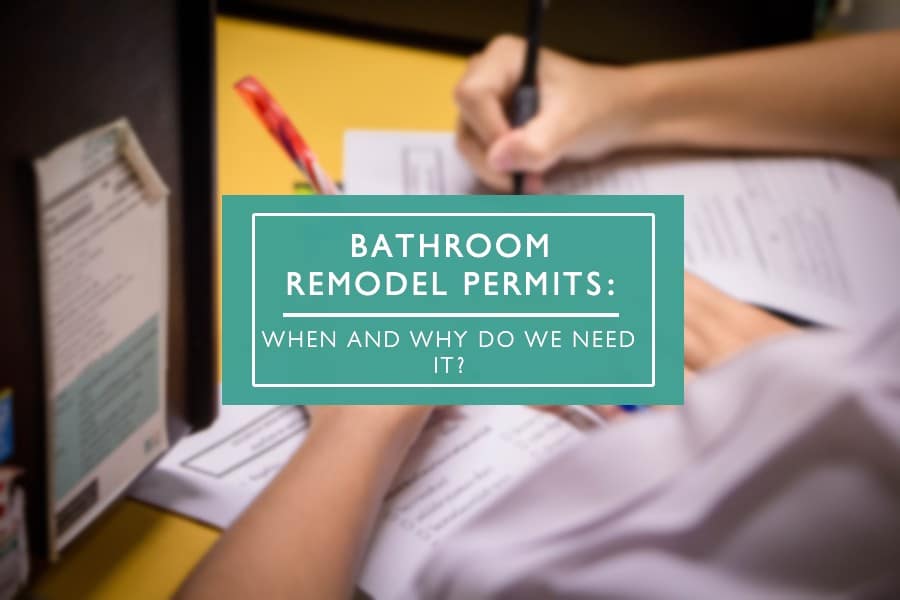If you’re planning a bathroom remodel, whether doing it yourself or hiring a contractor, it often requires a permit. ‘Often’ because it depends on the scope of the project, your location, and other factors. Even if the bathroom is one of the smallest spaces in a home, there are still systems, such as electrical and plumbing, which usually requires permits to be changed.
Aside from these systems, jobs like knocking a wall or adding new outlets may also require a permit. While there are renovations that are generally known to need or not need permits, such as simply replacing the flooring or walls, it is still better to check with local authorities since regulations will vary per state. Some cities may allow converting the shower to a tub without a permit, while others will require one.
You want to make sure that you follow your local regulations to avoid problems when inspectors come to visit. Even if you decide to hire a contractor, who already knows which projects require a permit, it’s important to be knowledgeable about these requirements as well. Continue reading to find out which are the usual renovations that require or doesn’t require permits, how to surely determine if your specific project will require one, and what happens if you remodel without a permit.
Changes That Don’t Usually Require A Permit
A bathroom remodel can be remodeled without a permit if it will involve minor alterations or repairs and changing visual elements. To be specific, here are some jobs that typically do not require a permit:
For anything involving electrical or plumbing work, as long as the wiring within the wall or ceiling stays the same and there won’t be changes to the plumbing, it usually does not need a permit. But as mentioned above, these are the renovations that are generally known not to require permits. It is still recommended to check with your municipality to avoid complications.

Renovations That Typically Require A Permit
In general, any bathroom remodel that involves structural, plumbing, electrical, or other mechanical changes require a permit. There are also some cities that may require a permit if the cost or length of your project goes beyond a certain amount. But to give you an idea, here are the different tasks under each of the changes that usually need a permit:
Structural
Plumbing
Electrical
Mechanically-Focused

What Happens If You Did A Remodel Without A Permit But Required One?
If you or your contractor were to do any bathroom remodeling without getting the required permits, then...
Your project can be stopped
The local governing body can stop your project. This would delay your schedule, which would be a headache for both you and your contractor.
You can be fined
Not only can you be fined, but your contractor may need to pay up as well as face other penalties.
You may spend twice on your project
If they discover that you did a bathroom remodel without the necessary permits, then you might need to get the work redone. This means you will have to spend twice as much to get your dream bathroom, because it may need to be torn down and inspected. They wanted to make sure it is done correctly, following regulations and redone up to code.
It will be difficult to resell
If you plan to sell your home in the future, then you may encounter problems if you’ve had remodeling work done without the required permits. Even if you were able to sell it, the lack of permits can result in the cancellation of the sale. Why make things complicated when you can prevent these from happening by making sure that you get the proper documents.
May affect your home’s insurance
Failure to present the required permits could negatively affect your home’s insurance coverage.
The Best Way To Check If A Permit Is Required For Your Remodel
If your project only involves the jobs under the first section (changes that don’t usually require a permit), but you are still worried if you’ll need one, then you can ask your local building department or city government permitting office. It is best to do this by email, so you have written record.
How To Fix A Project That Was Not Permitted
It is possible to get a permit after a project was completed.
If the project was built to current building codes you can apply for a permit through the usual process and then have it inspected, and permit finalled.
Typically you will need engineer certified plans that spec what the project was built to or a letter from an engineer certifying the structure / modification.
However issues can come up where the project might have sequential inspections that can no longer be completed... i.e. electrical work was done and now there is drywall over it. To inspect the electrical, the drywall would need to be removed.
And finally... contractors that don't pull permits often don't do things to code. If this is the case, the work will not be permittable.
Why Are Permits Important?
Aside from preventing the scenarios mentioned above, there are other reasons why permits are required when remodeling your bathroom.
Most importantly, for consumer protection. If you find a contractor who will work on your bathroom without pulling the necessary permits, then that is a red flag. They might not have the license and insurance to work on the project. With permits, you will have an inspector who can sign off on the work, depending on the scope of the project. This will ensure that the structure, plumbing, framing, electrical, and other work will comply with regulations and follows current codes. This will ensure that the project will be completed correctly and safely based on certain parameters and guidelines.
Having permits will also make it easier to sell your home (if ever you plan to do so) since all renovations are done comply with local codes. This may also be needed by insurance companies when they appraise the value of your home, informing them about the improvements done.
Should I or The Contractor Obtain The Permits?
If you’re planning on doing it yourself, then you will need to obtain the permits. But do note that some cities require a licensed professional to do the work when getting certain permits, so you may have no other choice but to hire a contractor.
If you initially planned to hire a contractor, it will depend on your agreement with them. Ideally, the contractor should take the responsibility of obtaining permits. Trusted and reliable professionals would also already know which permits your project will require.
But even if your contractor decides to handle this part of the project, it is still your responsibility to check and make sure that your project has the proper permits.
Finding the right bathroom remodel contractor
It is challenging to find trusted and reliable contractors. If you’ve done renovation work involving professionals before, then you know there are some who don’t return calls, take a long time to respond, or don’t show up on the day of the estimate.
CAN'T FIND THE RIGHT CONTRACTOR?

To save time and effort researching and comparing estimates, I recommend Networx. You can easily get quotes from licensed and insured contractors in your area. They need to have proper licensing and insurance to be able to join and are paying for the opportunity to earn your business, so they will be eager to earn it as well.
Related post: 10 Step Guide To Hiring A Top Notch Contractor

